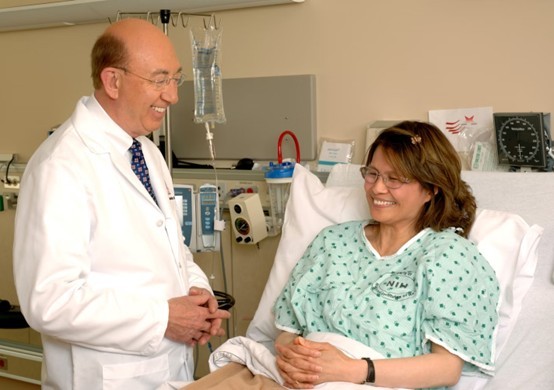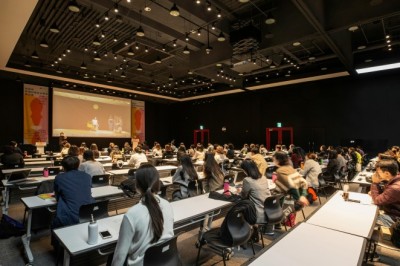views

A chronic illness is a lifetime of mental exhaustion, emotional stress, and physical difficulty. Nearly the majority of these conditions call for conventional medical care, which includes prescription drugs, surgery, and treatments.
However, these treatments might not always meet a patient's needs.
In this case, other solutions are advantageous. Together with conventional medical care, these non-traditional therapies address the whole person — body, mind, and spirit. Acupuncture, meditation, herbal remedies, and creative treatments can help patients in ways that traditional medicine cannot.
This article looks at how several therapies can improve the quality of life for those who suffer from chronic illnesses by reducing symptoms, improving mental health, and building resilience.
Understanding Alternative Therapies
Alternative therapies encompass a spectrum of treatments that go against conventional medical understanding. This includes physical therapies like massage and acupuncture, as well as mind-body disciplines like yoga and meditation. It can also include herbal remedies and aromatherapy.
These treatments have grown in popularity since they aid in symptom relief and relaxation. An all-encompassing approach to treating chronic illnesses is achieved by combining traditional medical care with complementary therapies.
For instance, alternative medicine has shown promise in improving patient outcomes by reducing the stress and suffering associated with chronic illness. For example, medical marijuana has been utilized to help breast cancer patients with their physical and emotional pain.
These accounts demonstrate how these therapies can enhance the quality of life and lessen both physical and psychological suffering in patients with long-term illnesses.
Managing Physical Symptoms with Alternative Therapies
Patients’ quality of life is greatly reduced by chronic conditions that cause their bodies to suffer from chronic pain, stiffness, or exhaustion. Without the negative effects of traditional drugs, alternative therapies can precisely reduce these symptoms.
Acupuncture, for example, is widely used to treat chronic pain as it stimulates the body to produce natural painkillers from specific locations. Additionally, massage treatment improves relaxation and eases the muscle tension brought on by fibromyalgia or arthritis.
Alternative therapies are also non-invasive ways to treat conditions like back pain. For chronic back pain, physical therapy and chiropractic adjustments are viable alternatives to surgery because they increase the range of motion and reduce pain.
By using these methods, patients can treat the underlying reasons for their pain without running the risk of surgery and reclaim control of their bodies.
Mind-Body Practices for Emotional and Mental Health
For people with chronic conditions, feeling stressed, anxious, and depressed can be emotionally draining. Mind-body therapies such as yoga, mindfulness meditation, and deep breathing techniques can mitigate these effects.
These treatments promote mental clarity, optimism, and relaxation — all facets of mental health that directly affect physical health.
An example of this is yoga being a successful tool to relieve pain from a physical or mental illness. Yoga has benefits for women suffering from conditions such as polycystic ovarian syndrome (PCOS). Women might be able to alleviate physical discomfort and control hormone imbalances by merely taking certain positions, like the cobra or butterfly.
Creative and Sensory Therapies for Emotional Resilience
Alternative therapies also may improve emotional well-being along with mental and physical health. Music, art, and animal-assisted interventions are examples of creative and sensory therapies that are good at inducing emotional expression and minimizing our feelings of present loneliness. And these therapies are safe ways for patients to address their emotions and their experiences.
For example, making art is a way for the patients to see their own inner struggles and to get a sense of seeing something accomplished, something to do. Conversely, music therapy can help ease depression and anxiety by refreshing and calming the mind.
Animal-assisted therapy increases emotional resilience and provides a community and solidarity through dog, cat, or even horse interaction. Together these treatments create an environment that is nurturing to those with chronic illnesses and help them manage the psychological effect of their illnesses.
Considerations When Using Alternative Therapies
Alternative therapies have promise, but there is caution and awareness that should be used when employing them.
If the patient is receiving normal medical care, then patients should consult their medical professional before beginning any alternative therapy. That means the chosen therapies are safe and don't interfere with medical procedures or prescription medicines.
Another important consideration is that evidence-based methods are required. We need to rely on those alternative medications that have been scientifically proven because not all alternative medications are supported by facts. That therapy should be tailored to each patient’s needs is also important since what works for one patient might not work for another.
It is also important to keep in mind that these treatments are designed, along with conventional medical care, not in place. Combined, they provide a total paradigm of these chronic conditions which considers both the mental and physical aspects of the same.
Conclusion
Chronic conditions patients have more options to improve their quality of life through alternative therapies. These therapies provide the means through a combination of physical symptom management, the development of emotional resilience, and the support of mental health to give a holistic look at well-being.
As they go about their recommended treatment plans, patients may consider such options as yoga for relief of stress, acupuncture for pain relief, and creative therapies for emotional support.
When patients take a holistic approach to health (combining beneficial alternatives with traditional therapy) they can take charge of their care. In addition to symptom relief, these therapies offer self-care and hope skills. They are a big step in making it easier for people who are struggling with the difficulties of chronic illness to live more comfortably and contentedly.
























Comments
0 comment